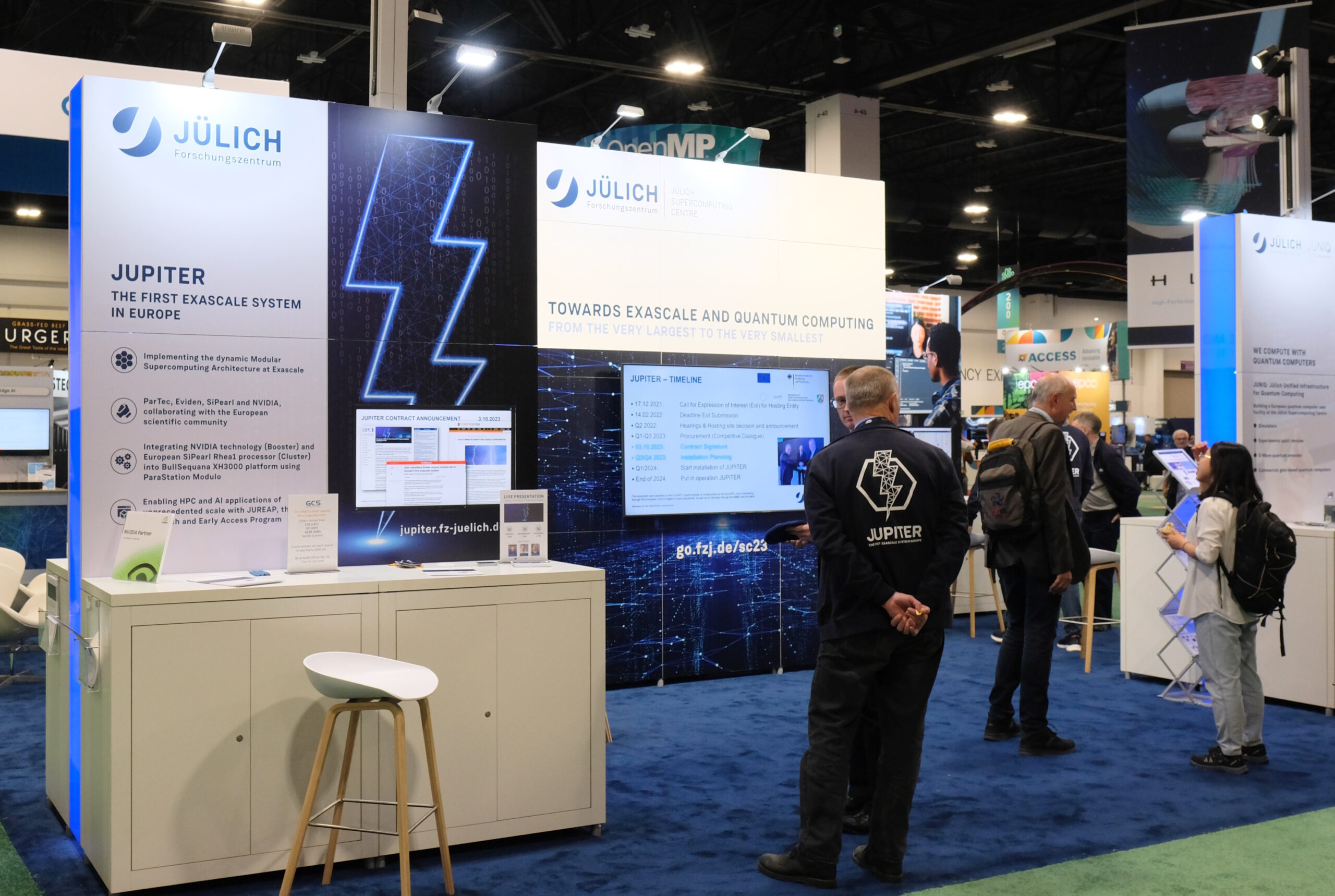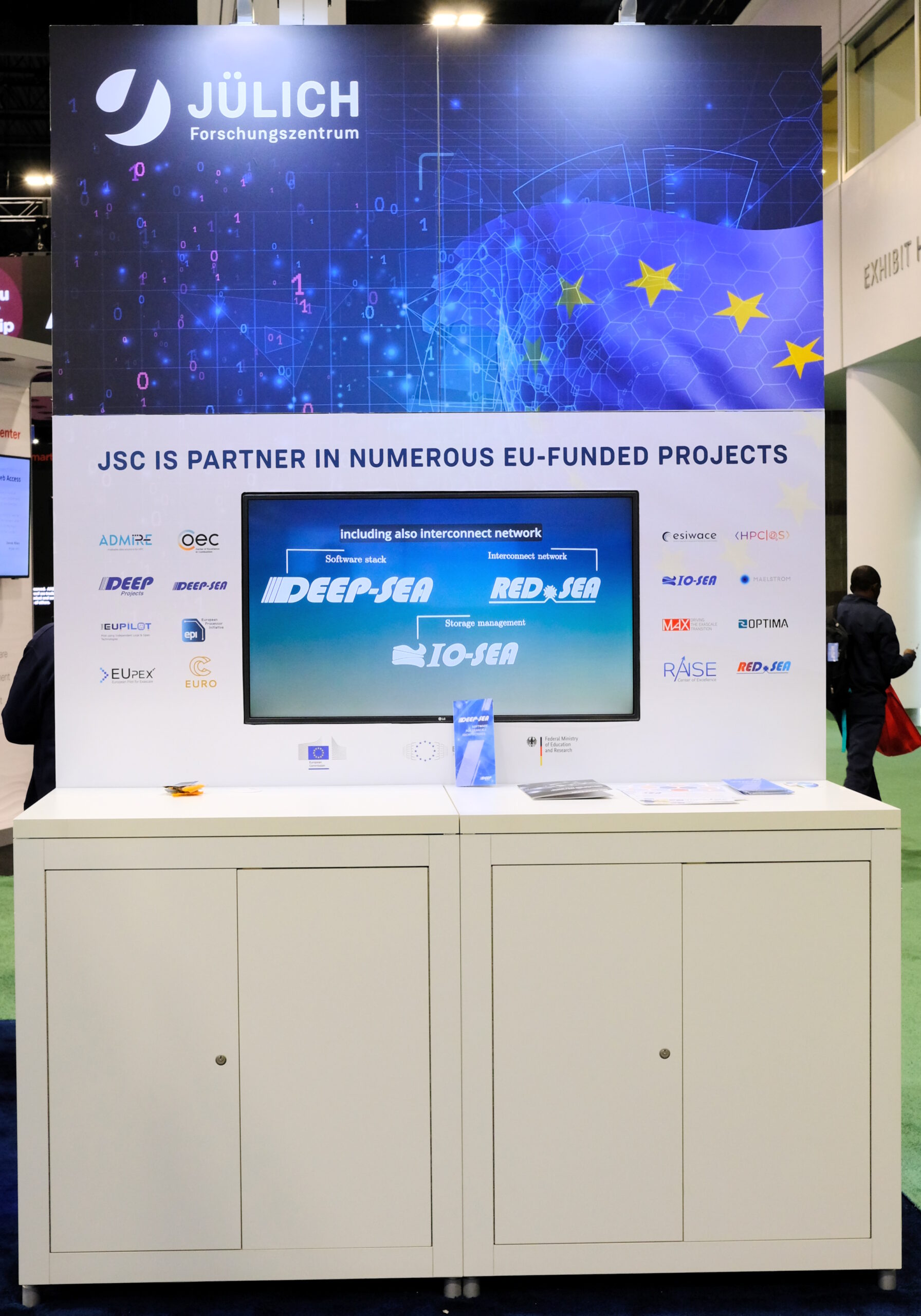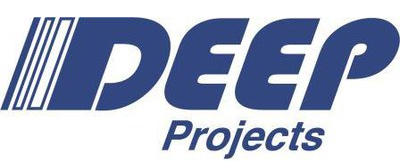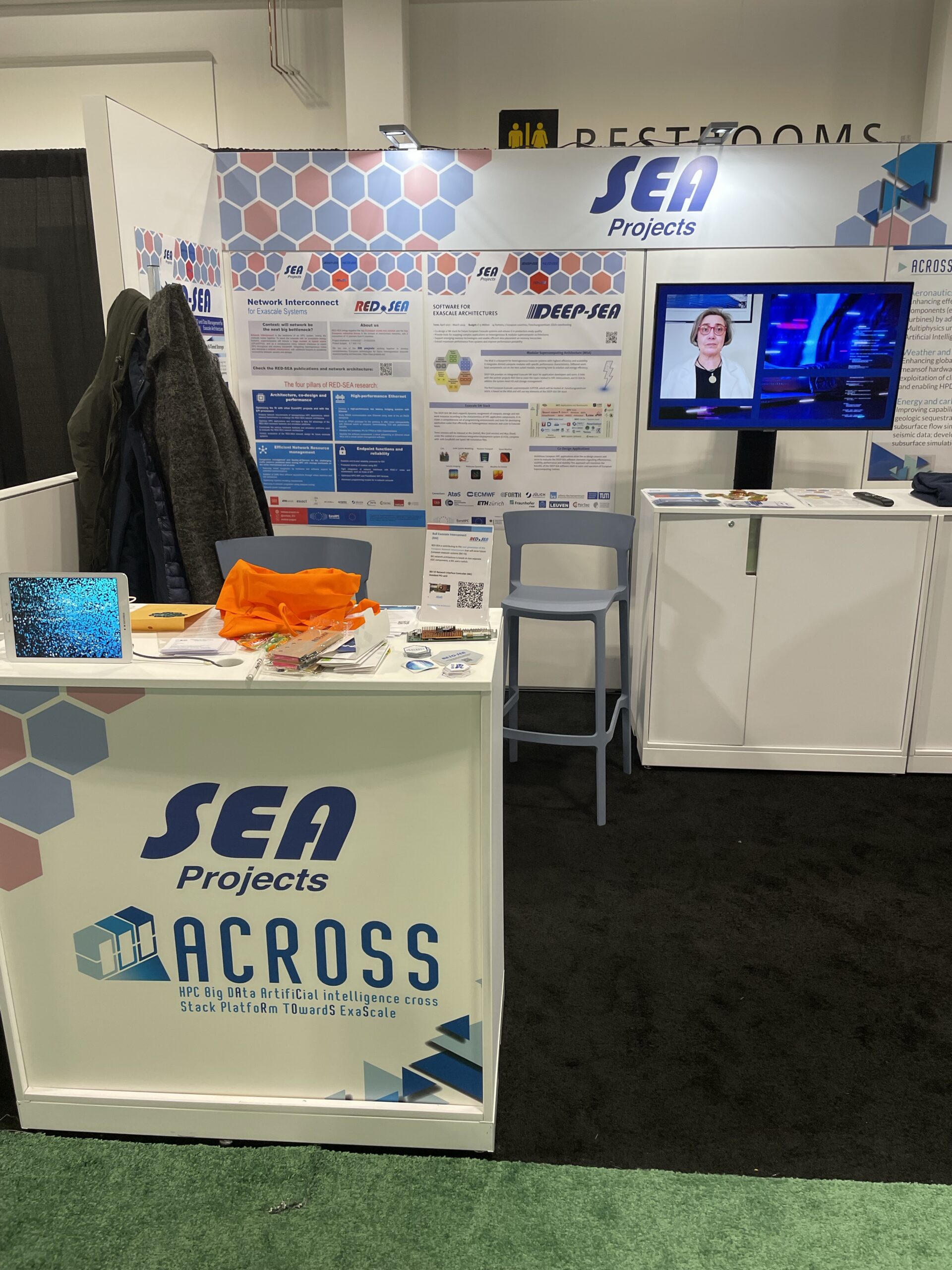
Looking back at Supercomputing 2023
The Supercomputing Conference (SC) is one of the premier, annual highlights for the HPC community. More than 14.000 people attending the conference this year clearly show that the interest in High Performance Computing, Networking, Storage, and Data Analysis is greater than ever.
The DEEP-SEA project participated in the technical program and also in the exhibition. An overview of the contributions to the technical program can be found here: https://deep-projects.eu/exascale-in-colorado-deep-sea-at-this-years-supercomputing-conference/
As in the year before, DEEP-SEA shared its booth presences with the other two SEA projects IO-SEA and RED-SEA. Together with the ACROSS project, the SEA projects had their own booth, and Jülich Supercomputing Centre (JSC), the coordinating institution of all four DEEP projects dedicated a presentation island to the SEA projects.
Hans-Christian Hoppe is a long-time European HPC expert. He currently works for JSC and ParTec AG and manages the DEEP-SEA project on behalf of the former. We spoke to him about his impressions and key take-aways from this year’s SC.
Hans-Christian, what expectations did you have coming to the conference and were they met?
The big unknown was of course the post-pandemic level of interest and participation in HPC in general and in the SC23 conference and exhibition. SC23 had record attendance, plus the number of exhibitors did reach an all-time high. This is even more significant recognizing that mainland Chinese participation is still very low.
While SC23 did see no earth-shattering announcements, there was clear progress in CPU and accelerator development amongst the established vendors, one additional Exascale system made it into the Top500 list (although only partly), and technical details on the first European Exascale system (Jupiter at JSC) were announced. In addition, new vendors such as NextSilicon showed promising, innovative computing architectures, and accelerators both for AI training and inference had a very strong presence.
Since the conference program and the community discussion were as strong as ever, SC23 did indeed clearly surpass my expectations.
Your research focus lies on heterogeneous system architectures. Was there something like a light bulb moment? Did you learn anything unexpected or thought provoking on the topic?
Having been in the field for so long, actual epiphanies do occur quite seldomly, But – there is huge value in re-discovering old ideas and leveraging cutting-edge technology to bring the field forward. Examples are alternative computing concepts, and the variety of accelerator designs which go beyond creating larger and larger GPUs. And, of course, quantum computing is making leaps and bounds progress.
You attended Supercomputing several times already. Do you see any changes over the years?
The Supercomputing organizers have been tremendously successful in broadening the technical scope of the conference and exhibition, which now seamlessly includes networks, storage systems, AI and data analytics, and quantum computing in addition to SC’s core field of HPC computing. On top of that, SC is making great strides in truly becoming inclusive and engaging with technical experts and scientists, technology end-users, policy makers and interested persons across boundaries and all segments of society.




